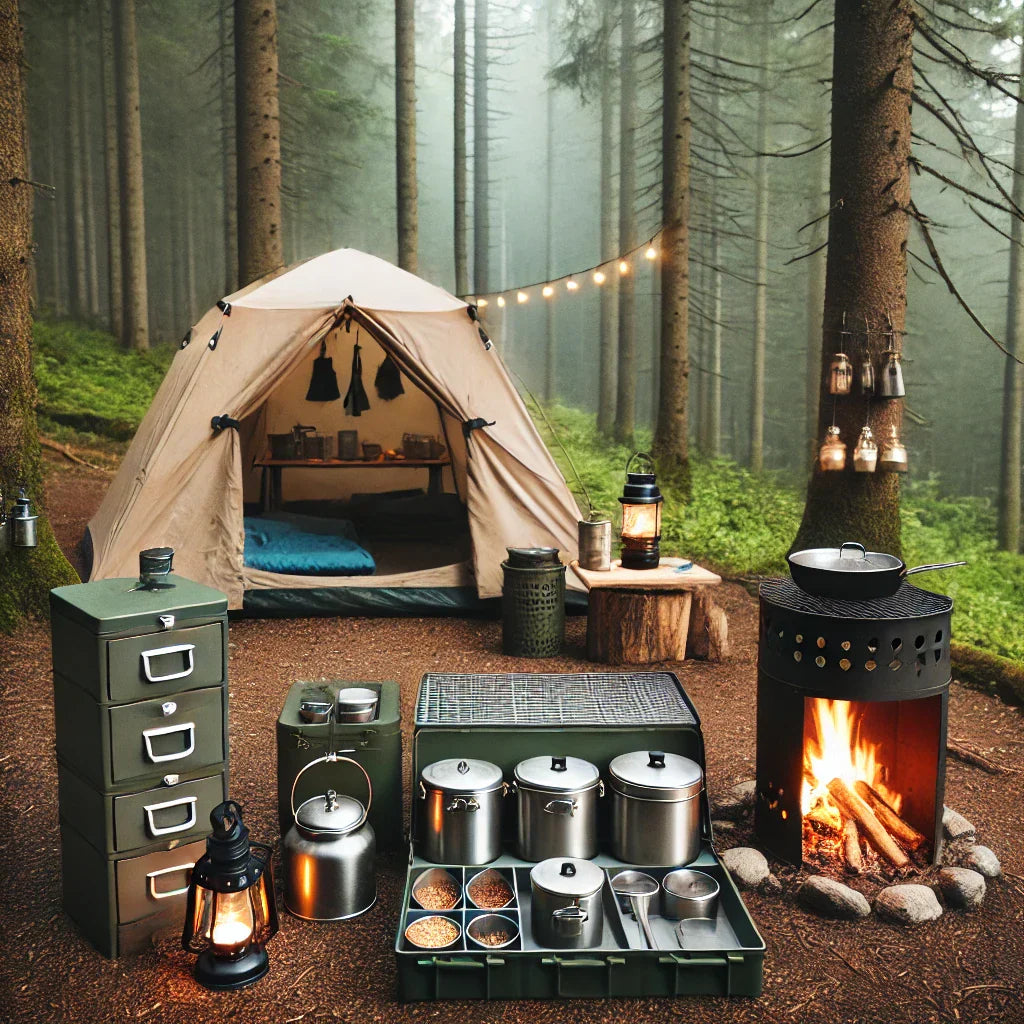RODENT-PROOF YOUR CAMPSITE: KEEP RATS AND MICE AWAY

RODENT-PROOF YOUR CAMPSITE: KEEP RATS AND MICE AWAY
SUMMARY
Rats and mice can quickly become a nuisance at campsites, contaminating food and damaging gear. Preventing rodent infestations requires a combination of secure food storage, campsite cleanliness, and natural deterrents. By eliminating attractants and blocking access points, you can enjoy a rodent-free outdoor experience.
FEATURES
- Food Storage: Use airtight containers and hang food away from sleeping areas.
- Waste Management: Dispose of trash properly and keep garbage bins sealed.
- Natural Deterrents: Scatter peppermint oil-soaked cotton balls or use predator urine.
- Shelter Maintenance: Keep tents and sleeping bags zipped to prevent entry.
- Campsite Selection: Choose dry, open areas away from dense vegetation.
DESCRIPTION
Protecting your campsite from rats and mice is essential for a safe and comfortable outdoor experience. Start by storing all food in airtight, rodent-proof containers. Hanging food from a tree branch or using a bear-proof storage locker adds an extra layer of protection. Keep all food, cooking supplies, and trash far from your sleeping area to avoid attracting rodents.
Proper waste management is crucial in rodent prevention. Always dispose of food scraps and garbage in sealed bins or designated waste disposal areas. Avoid leaving dirty dishes or food residue around your campsite, as even small crumbs can draw in unwanted pests.
Natural deterrents are another effective way to keep rodents at bay. Peppermint oil, cloves, and cedarwood can be used around tents and food storage areas to repel rats and mice. Some campers also use predator urine granules as a natural deterrent, mimicking the scent of larger animals that prey on rodents.
Your shelter should also be protected. Ensure your tent is properly zipped at all times, and avoid keeping food inside. Use a ground tarp and avoid setting up camp near rock piles, dense brush, or other rodent-friendly hiding spots. Choosing a dry, well-lit campsite with minimal ground cover reduces the likelihood of encountering rats and mice.
By combining these methods, you can significantly lower the chances of rodent infestations at your campsite. Maintaining cleanliness, sealing food, and using deterrents will help ensure a peaceful and pest-free camping experience.
- Maanas Mehta


Comments 0